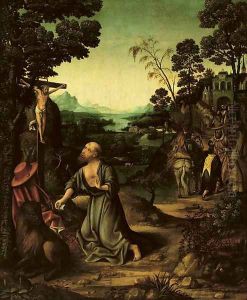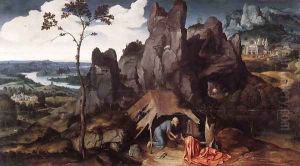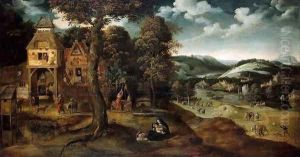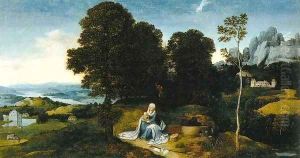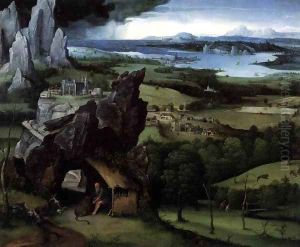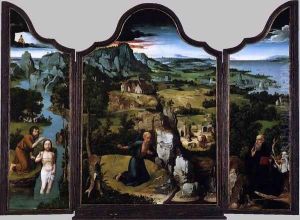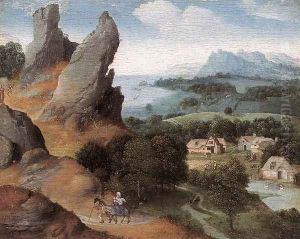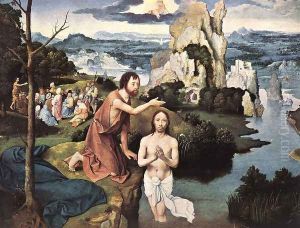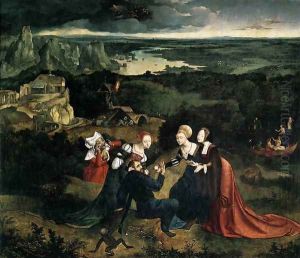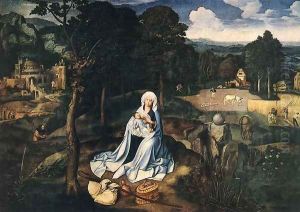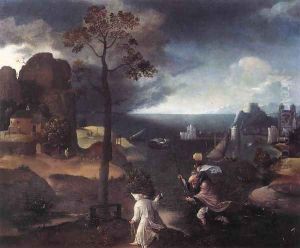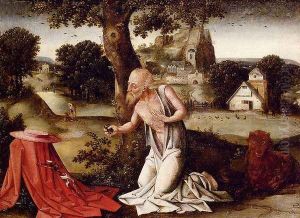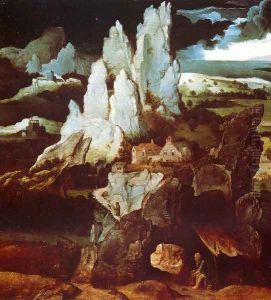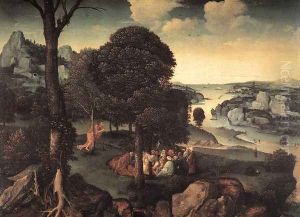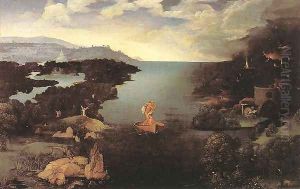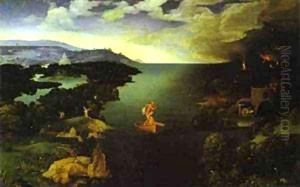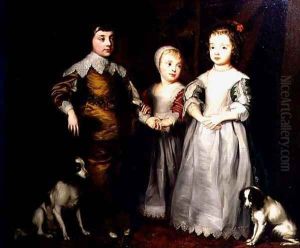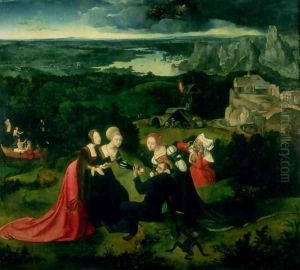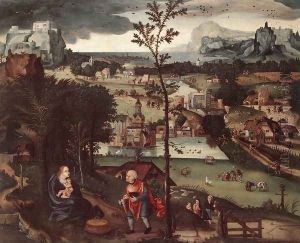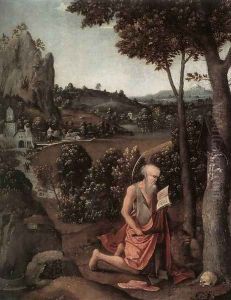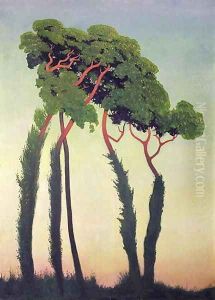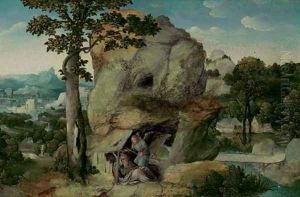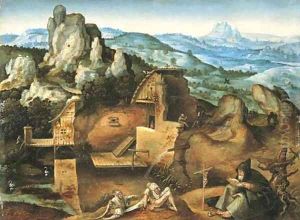Joachim Patenier (Patinir) Paintings
Joachim Patenier, also known as Joachim Patinir, was a Flemish painter of the Renaissance period, widely recognized as one of the pioneers of landscape painting. He was born around 1480 in Dinant or Bouvignes, in present-day Belgium, which was then part of the Habsburg Netherlands. Little is known about his early life or training, but it is believed that he may have been a pupil of Gerard David in Bruges.
Patenier moved to Antwerp by 1515 and became a master in the Antwerp painters' guild. Antwerp was a burgeoning center for art and commerce, and it was there that Patenier's unique approach to painting began to flourish. He is especially noted for his innovative and expansive landscapes, which he often used as settings for religious and mythological scenes. His landscapes were not mere backdrops but played a significant role in the composition, often overshadowing the narrative elements of the painting.
He is credited with being the first artist to paint landscapes for their own sake, moving beyond the traditional use of landscapes as settings for human activity. His works typically feature a high horizon line and include detailed renderings of natural elements such as rocks, trees, and water. Patenier's use of color and light was distinctive, and he often employed a cool, atmospheric perspective that gave his paintings a sense of depth and vastness.
Some of Patenier's most famous works include 'The Baptism of Christ,' 'Charon Crossing the Styx,' and the triptych 'The Penitence of Saint Jerome.' His paintings were highly sought after, and he garnered the patronage of important figures, including the future Holy Roman Emperor Charles V.
Joachim Patenier's influence extended to many artists of his time and later, including Pieter Bruegel the Elder. Despite his relatively small body of surviving work, his contribution to the development of landscape painting was significant. He passed away in Antwerp in 1524, leaving behind a legacy that would shape the future of Western art.
